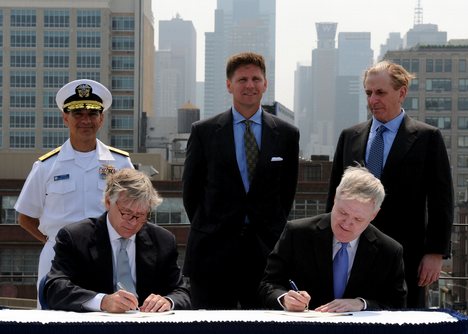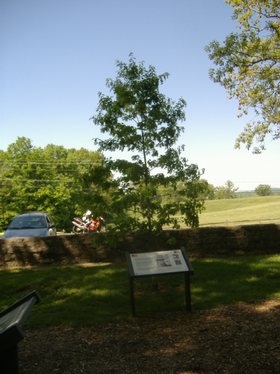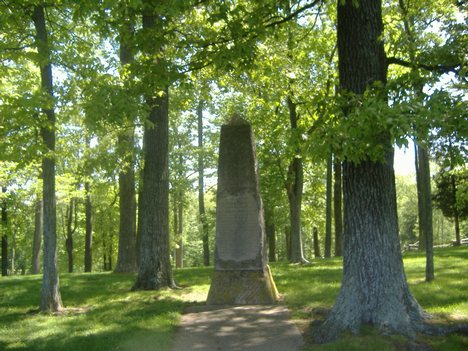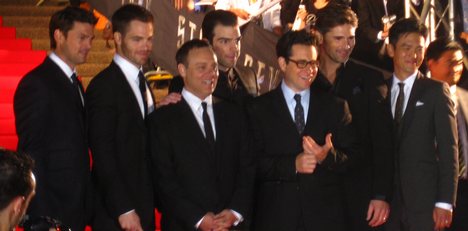- About WN
- Contact
- Feedback
- Privacy Policy
- © 2011 World News Inc., all Rights Reserved
- Andrew Hill
- Art Blakey
- Bennie Maupin
- Benny Golson
- Billy Harper
- Billy Hart
- Bobby Timmons
- Clifford Brown
- Dizzy Gillespie
- Elvin Jones
- Freddie Hubbard
- Freddie Waits
- Hank Mobley
- Harold Mabern
- Jackie McLean
- Joe Henderson
- John Coltrane
- Jymie Merritt
- Lonnie Smith
- Mickey Roker
- Stanley Turrentine
- Wayne Shorter
- A Slice of the Top
- Andrew Hill
- Art Blakey
- Bebop
- Bennie Maupin
- Benny Golson
- Billy Harper
- Billy Hart
- Blue Note Records
- Blue Train (album)
- Bobby Timmons
- boogaloo
- Caramba!
- Charisma (album)
- Chrysler
- Clifford Brown
- Cornbread (album)
- Delightfulee
- Dippin'
- Dizzy Gillespie
- Elvin Jones
- Expoobident
- Freddie Hubbard
- Freddie Waits
- Grachan Moncur III
- Hank Mobley
- hard bop
- Harold Mabern
- Here's Lee Morgan
- Jackie McLean
- Joe Henderson
- John Coltrane
- Jymie Merritt
- Lee Morgan Indeed!
- Lee Morgan Sextet
- Lee Morgan Vol. 3
- Lee-Way
- Lonnie Smith
- McCoy Tyner
- Mickey Roker
- Moanin'
- Mode for Joe
- New York City
- Night Dreamer
- Pennsylvania
- Philadelphia
- Reuben Wilson
- Stanley Turrentine
- Straight No Filter
- Take Twelve
- Taru (album)
- Tender Moments
- The Cooker
- The Freedom Rider
- The Gigolo
- The Procrastinator
- The Rajah (album)
- The Rumproller
- The Sidewinder
- Tom Cat (album)
- Trumpet
- trumpeter
- United States
- Vee-Jay Records
- vibraphone
- Wayne Shorter
- World Series



- Order: Reorder
- Duration: 5:26
- Published: 10 Feb 2009
- Uploaded: 07 Sep 2011
- Author: TheMetamucilMan


- Order: Reorder
- Duration: 10:29
- Published: 11 Feb 2010
- Uploaded: 07 Sep 2011
- Author: StrawberryFairyShoes

- Order: Reorder
- Duration: 10:14
- Published: 14 Jun 2009
- Uploaded: 08 Sep 2011
- Author: MusicForYourFunk

- Order: Reorder
- Duration: 10:24
- Published: 22 Nov 2010
- Uploaded: 25 Aug 2011
- Author: JazzVideoGuy

- Order: Reorder
- Duration: 5:51
- Published: 11 Jul 2010
- Uploaded: 19 Aug 2011
- Author: RollTheBeatz

- Order: Reorder
- Duration: 8:59
- Published: 21 Nov 2009
- Uploaded: 06 Sep 2011
- Author: rogerjazzfan

- Order: Reorder
- Duration: 9:59
- Published: 09 May 2008
- Uploaded: 05 Sep 2011
- Author: SidewalksOfNY315

- Order: Reorder
- Duration: 4:43
- Published: 14 Jul 2010
- Uploaded: 05 Sep 2011
- Author: privatefender

- Order: Reorder
- Duration: 5:51
- Published: 29 Nov 2009
- Uploaded: 03 Sep 2011
- Author: MrBeatlesCovers

- Order: Reorder
- Duration: 9:46
- Published: 18 Feb 2010
- Uploaded: 03 Sep 2011
- Author: FunkySkunk90

- Order: Reorder
- Duration: 5:30
- Published: 13 Mar 2009
- Uploaded: 02 Sep 2011
- Author: Candydepasqualin


- Order: Reorder
- Duration: 10:16
- Published: 20 Jul 2010
- Uploaded: 02 Sep 2011
- Author: FunkySkunk90

- Order: Reorder
- Duration: 5:39
- Published: 21 Oct 2010
- Uploaded: 06 Sep 2011
- Author: MINICQQPER




- Order: Reorder
- Duration: 7:06
- Published: 21 Oct 2010
- Uploaded: 08 Sep 2011
- Author: MINICQQPER

- Order: Reorder
- Duration: 8:10
- Published: 21 Oct 2010
- Uploaded: 08 Sep 2011
- Author: rogerjazzfan
























- A Caddy for Daddy
- A Slice of the Top
- Andrew Hill
- Art Blakey
- Bebop
- Bennie Maupin
- Benny Golson
- Billy Harper
- Billy Hart
- Blue Note Records
- Blue Train (album)
- Bobby Timmons
- boogaloo
- Caramba!
- Charisma (album)
- Chrysler
- Clifford Brown
- Cornbread (album)
- Delightfulee
- Dippin'
- Dizzy Gillespie
- Elvin Jones
- Expoobident
- Freddie Hubbard
- Freddie Waits
- Grachan Moncur III
- Hank Mobley
- hard bop
- Harold Mabern
- Here's Lee Morgan
- Jackie McLean
- Joe Henderson
- John Coltrane
- Jymie Merritt
- Lee Morgan Indeed!
- Lee Morgan Sextet
- Lee Morgan Vol. 3
- Lee-Way
- Lonnie Smith
- McCoy Tyner
- Mickey Roker
- Moanin'
- Mode for Joe
- New York City
- Night Dreamer
- Pennsylvania
- Philadelphia
- Reuben Wilson
- Stanley Turrentine
- Straight No Filter
- Take Twelve
- Taru (album)
- Tender Moments
- The Cooker
- The Freedom Rider
- The Gigolo
- The Procrastinator
- The Rajah (album)
- The Rumproller
- The Sidewinder
Lee Morgan
| Name | Lee Morgan |
|---|---|
| Background | non_vocal_instrumentalist |
| Birth name | Edward Lee Morgan |
| Birth date | July 10, 1938 |
| Died | February 19, 1972, New York, United States |
| Origin | Philadelphia, Pennsylvania, United States |
| Instrument | Trumpet |
| Genre | Bebop, hard bop |
| Label | Blue Note Records, Vee-Jay Records}} |
Edward Lee Morgan (July 10, 1938, Philadelphia, Pennsylvania – February 19, 1972, New York City) was an American hard bop trumpeter.
Biography
Edward Lee Morgan was born in Philadelphia on July 10, 1938, the youngest of Otto Ricardo and Nettie Beatrice Morgan's four children.Lee Morgan, a leading trumpeter and composer, recorded prolifically from 1956 until a day before his death in February 1972. Originally interested in the vibraphone, he soon showed a growing enthusiasm for the trumpet. On his thirteenth birthday, his sister Ernestine gave him his first trumpet. His primary stylistic influence was Clifford Brown, who gave the teenager a few lessons before he joined the Dizzy Gillespie Big Band at 18, and remained a member for a year and a half, until economics forced Dizzy to disband the unit in 1958. He began recording for Blue Note Records in 1956, eventually recording 25 albums as a leader for the company, with more than 250 musicians. He also recorded on the Vee-Jay label.
He was a featured sideman on several early Hank Mobley records, as well as on John Coltrane's Blue Train (1957), on which he played a trumpet with an angled bell (given to him by Gillespie) and delivered one of his most celebrated solos on the title track.
Joining Art Blakey's Jazz Messengers in 1958 further developed his talent as a soloist and composer. He toured with Blakey for a few years, and was featured on numerous albums by the Messengers, including Moanin', which is one of the band's best-known recordings. When Benny Golson left the Jazz Messengers, Morgan persuaded Blakey to hire Wayne Shorter, a young tenor saxophonist, to fill the chair. This version of the Jazz Messengers, including pianist Bobby Timmons and bassist Jymie Merritt, would record the classic The Freedom Rider album. The drug problems of Morgan and Timmons forced them to leave the band in 1961, and the trumpeter returned to Philadelphia, his hometown. According to Tom Perchard, a Morgan biographer, it was Blakey who introduced the trumpeter to heroin, an addictive drug that impeded his career trajectory.
On returning to New York in 1963, he recorded The Sidewinder (1963), which became his greatest commercial success. The title track cracked the pop charts in 1964, and served as the background theme for Chrysler television commercials during the World Series. The tune was used without Morgan's or Blue Note's consent, and intercession by the label's lawyers led to the commercial being withdrawn. Due to the crossover success of "The Sidewinder" in a rapidly changing pop music market, Blue Note owners encouraged other of its artists to emulate the tune's "boogaloo" beat. Morgan himself repeated the formula several times with compositions such as "Cornbread" (from the eponymous album Cornbread) and "Yes I Can, No You Can't" on The Gigolo. According to drummer Billy Hart, Morgan said he had recorded "The Sidewinder" as filler for the album, and was bemused that it had turned into his biggest hit. He felt that his playing was much more advanced on Grachan Moncur III's essentially avant-garde Evolution album, recorded a month earlier, on November 21, 1963.
After this commercial success, Morgan continued to record prolifically, producing such works as Search for the New Land (1964), which reached the top 20 of the R&B; charts. He also briefly rejoined the Jazz Messengers after his successor, Freddie Hubbard, joined another group. Together with John Gilmore, this lineup was filmed by the BBC for seminal jazz television program Jazz 625.
As the 60's progressed, he recorded some twenty additional albums as a leader, and continued to record as a sideman on the albums of other artists, including Wayne Shorter's Night Dreamer; Stanley Turrentine's Mr. Natural; Freddie Hubbard's The Night of the Cookers; Hank Mobley's Dippin', A Caddy for Daddy, A Slice of the Top, Straight No Filter; Jackie McLean's Jackknife and Consequence; Joe Henderson's Mode for Joe; McCoy Tyner's Tender Moments; Lonnie Smith's Think and Turning Point; Elvin Jones' The Prime Element; Jack Wilson's Easterly Winds; Reuben Wilson's Love Bug; Larry Young's Mother Ship; Lee Morgan and Clifford Jordan Live in Baltimore 1968; Andrew Hill's Grass Roots; as well as on several albums with Art Blakey and the Jazz Messengers.
He became more politically involved in the last two years of his life, becoming one of the leaders of the Jazz and People's Movement. The group demonstrated during the taping of talk and variety shows during 1970-71 to protest the lack of jazz artists as guest performers and members of the programs' bands. His working band during those last years featured reedmen Billy Harper or Bennie Maupin, pianist Harold Mabern, bassist Jymie Merritt and drummers Mickey Roker or Freddie Waits. Maupin, Mabern, Merritt and Roker are featured on the well-regarded 3-disc, Live at the Lighthouse, recorded during a two-week engagement at the Hermosa Beach club, California, in July 1970.
Death
Morgan was murdered in the early hours of February 19, 1972, at Slugs', a jazz club in New York City's East Village where his band was performing. Following an altercation between sets, Morgan's common-law wife Helen More (aka; Morgan), shot him in the chest onstage, killing him within moments. He was 33 years old. According to an eye witness, Miss More (13 years his senior) walked out of the club just before the last set. She returned and the band was already on stage. Lee was trying to get up there, but was talking with some people. He just started to get up the stage, when she entered and called his name. He turned around and she shot him in the heart. She then turned the gun on the club's doorman Ernie Holman, who grabbed her wrist and took the gun away from her. She started to scream "Baby, what have I done?" and ran to him. She was later arrested, tried, sentenced, and paroled by 1978. Soon after, Helen Morgan returned to her native North Carolina. Reportedly she never spoke publicly of the incident, until she granted an interview a month before her death. She died in WIlmington, NC, from heart condition, in March 1996. Helen Morgan was 69.
Discography
{| cellspacing="0" cellpadding="2" border="0" |- style="background:#ffdead;" ! align="left" style="border-bottom:1px solid grey; border-top:1px solid grey;" | Title ! width="10" style="border-bottom:1px solid grey; border-top:1px solid grey;" | ! align="left" style="border-bottom:1px solid grey; border-top:1px solid grey;" | Year ! width="10" style="border-bottom:1px solid grey; border-top:1px solid grey;" | ! align="left" style="border-bottom:1px solid grey; border-top:1px solid grey;" | Label |- | style="border-bottom:1px solid grey;" | Lee Morgan Indeed! | style="border-bottom:1px solid grey;" | | style="border-bottom:1px solid grey;" | 1956 | style="border-bottom:1px solid grey;" | | style="border-bottom:1px solid grey;" | Blue Note |- | style="border-bottom:1px solid grey;" | Introducing Lee Morgan | style="border-bottom:1px solid grey;" | | style="border-bottom:1px solid grey;" | 1956 | style="border-bottom:1px solid grey;" | | style="border-bottom:1px solid grey;" | Savoy |- | style="border-bottom:1px solid grey;" | Lee Morgan Sextet | style="border-bottom:1px solid grey;" | | style="border-bottom:1px solid grey;" | 1957 | style="border-bottom:1px solid grey;" | | style="border-bottom:1px solid grey;" | Blue Note |- | style="border-bottom:1px solid grey;" | Lee Morgan Vol. 3 | style="border-bottom:1px solid grey;" | | style="border-bottom:1px solid grey;" | 1957 | style="border-bottom:1px solid grey;" | | style="border-bottom:1px solid grey;" | Blue Note |- | style="border-bottom:1px solid grey;" | City Lights | style="border-bottom:1px solid grey;" | | style="border-bottom:1px solid grey;" | 1957 | style="border-bottom:1px solid grey;" | | style="border-bottom:1px solid grey;" | Blue Note |- | style="border-bottom:1px solid grey;" | The Cooker | style="border-bottom:1px solid grey;" | | style="border-bottom:1px solid grey;" | 1957 | style="border-bottom:1px solid grey;" | | style="border-bottom:1px solid grey;" | Blue Note |- | style="border-bottom:1px solid grey;" | Candy | style="border-bottom:1px solid grey;" | | style="border-bottom:1px solid grey;" | 1957 | style="border-bottom:1px solid grey;" | | style="border-bottom:1px solid grey;" | Blue Note |- |- | style="border-bottom:1px solid grey;" | Here's Lee Morgan | style="border-bottom:1px solid grey;" | | style="border-bottom:1px solid grey;" | 1960 | style="border-bottom:1px solid grey;" | | style="border-bottom:1px solid grey;" | Vee-Jay |- | style="border-bottom:1px solid grey;" | The Young Lions | style="border-bottom:1px solid grey;" | | style="border-bottom:1px solid grey;" | 1960 | style="border-bottom:1px solid grey;" | | style="border-bottom:1px solid grey;" | Vee-Jay |- | style="border-bottom:1px solid grey;" | Expoobident | style="border-bottom:1px solid grey;" | | style="border-bottom:1px solid grey;" | 1960 | style="border-bottom:1px solid grey;" | | style="border-bottom:1px solid grey;" | Vee-Jay |- | style="border-bottom:1px solid grey;" | Lee-Way | style="border-bottom:1px solid grey;" | | style="border-bottom:1px solid grey;" | 1960 | style="border-bottom:1px solid grey;" | | style="border-bottom:1px solid grey;" | Blue Note |- | style="border-bottom:1px solid grey;" | Take Twelve | style="border-bottom:1px solid grey;" | | style="border-bottom:1px solid grey;" | 1962 | style="border-bottom:1px solid grey;" | | style="border-bottom:1px solid grey;" | Jazzland |- | style="border-bottom:1px solid grey;" | The Sidewinder | style="border-bottom:1px solid grey;" | | style="border-bottom:1px solid grey;" | 1963 | style="border-bottom:1px solid grey;" | | style="border-bottom:1px solid grey;" | Blue Note |- | style="border-bottom:1px solid grey;" | Search for the New Land | style="border-bottom:1px solid grey;" | | style="border-bottom:1px solid grey;" | 1964 | style="border-bottom:1px solid grey;" | | style="border-bottom:1px solid grey;" | Blue Note |- | style="border-bottom:1px solid grey;" | Tom Cat | style="border-bottom:1px solid grey;" | | style="border-bottom:1px solid grey;" | 1964 | style="border-bottom:1px solid grey;" | | style="border-bottom:1px solid grey;" | Blue Note |- | style="border-bottom:1px solid grey;" | The Rumproller | style="border-bottom:1px solid grey;" | | style="border-bottom:1px solid grey;" | 1965 | style="border-bottom:1px solid grey;" | | style="border-bottom:1px solid grey;" | Blue Note |- | style="border-bottom:1px solid grey;" | The Gigolo | style="border-bottom:1px solid grey;" | | style="border-bottom:1px solid grey;" | 1965 | style="border-bottom:1px solid grey;" | | style="border-bottom:1px solid grey;" | Blue Note |- | style="border-bottom:1px solid grey;" | Cornbread | style="border-bottom:1px solid grey;" | | style="border-bottom:1px solid grey;" | 1965 | style="border-bottom:1px solid grey;" | | style="border-bottom:1px solid grey;" | Blue Note |- | style="border-bottom:1px solid grey;" | Infinity | style="border-bottom:1px solid grey;" | | style="border-bottom:1px solid grey;" | 1965 | style="border-bottom:1px solid grey;" | | style="border-bottom:1px solid grey;" | Blue Note |- | style="border-bottom:1px solid grey;" | Delightfulee | style="border-bottom:1px solid grey;" | | style="border-bottom:1px solid grey;" | 1966 | style="border-bottom:1px solid grey;" | | style="border-bottom:1px solid grey;" | Blue Note |- | style="border-bottom:1px solid grey;" | Charisma | style="border-bottom:1px solid grey;" | | style="border-bottom:1px solid grey;" | 1966 | style="border-bottom:1px solid grey;" | | style="border-bottom:1px solid grey;" | Blue Note |- | style="border-bottom:1px solid grey;" | The Rajah | style="border-bottom:1px solid grey;" | | style="border-bottom:1px solid grey;" | 1966 | style="border-bottom:1px solid grey;" | | style="border-bottom:1px solid grey;" | Blue Note |- | style="border-bottom:1px solid grey;" | Standards | style="border-bottom:1px solid grey;" | | style="border-bottom:1px solid grey;" | 1967 | style="border-bottom:1px solid grey;" | | style="border-bottom:1px solid grey;" | Blue Note |- | style="border-bottom:1px solid grey;" | Sonic Boom | style="border-bottom:1px solid grey;" | | style="border-bottom:1px solid grey;" | 1967 | style="border-bottom:1px solid grey;" | | style="border-bottom:1px solid grey;" | Blue Note |- | style="border-bottom:1px solid grey;" | The Procrastinator | style="border-bottom:1px solid grey;" | | style="border-bottom:1px solid grey;" | 1967 | style="border-bottom:1px solid grey;" | | style="border-bottom:1px solid grey;" | Blue Note |- | style="border-bottom:1px solid grey;" | The Sixth Sense | style="border-bottom:1px solid grey;" | | style="border-bottom:1px solid grey;" | 1967 | style="border-bottom:1px solid grey;" | | style="border-bottom:1px solid grey;" | Blue Note |- | style="border-bottom:1px solid grey;" | Taru | style="border-bottom:1px solid grey;" | | style="border-bottom:1px solid grey;" | 1968 | style="border-bottom:1px solid grey;" | | style="border-bottom:1px solid grey;" | Blue Note |- | style="border-bottom:1px solid grey;" | Caramba! | style="border-bottom:1px solid grey;" | | style="border-bottom:1px solid grey;" | 1968 | style="border-bottom:1px solid grey;" | | style="border-bottom:1px solid grey;" | Blue Note |- | style="border-bottom:1px solid grey;" | Live at the Lighthouse | style="border-bottom:1px solid grey;" | | style="border-bottom:1px solid grey;" | 1970 | style="border-bottom:1px solid grey;" | | style="border-bottom:1px solid grey;" | Blue Note |- | style="border-bottom:1px solid grey;" | The Last Session | style="border-bottom:1px solid grey;" | | style="border-bottom:1px solid grey;" | 1971 | style="border-bottom:1px solid grey;" | | style="border-bottom:1px solid grey;" | Blue Note |}
Further reading
References
External links
Category:1938 births Category:1972 deaths Category:American jazz trumpeters Category:Bebop trumpeters Category:Hard bop trumpeters Category:Murdered entertainers Category:Musicians from Philadelphia, Pennsylvania Category:Savoy Records artists Category:Vee-Jay Records artists Category:Blue Note Records artists Category:Musicians who died on stage
This text is licensed under the Creative Commons CC-BY-SA License. This text was originally published on Wikipedia and was developed by the Wikipedia community.

























